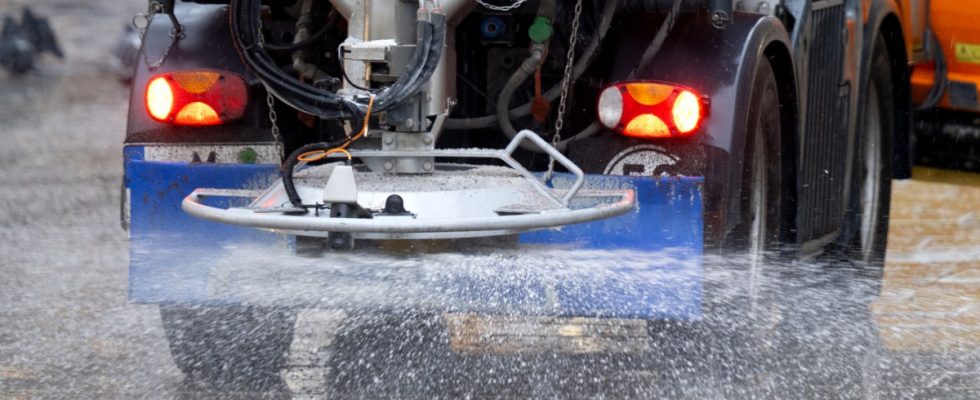In the future, the building department will be able to spread salt at its own discretion in the event of extremely heavy snowfall or if it is slippery on sidewalks and cycle paths. The city council decided this on Wednesday, thereby relaxing the general ban that has caused chaotic conditions twice this winter.
Mayor Dieter Reiter (SPD) intervened after a few days with his special right, as the directly elected head of the city, to override the relevant statutes with an urgent order. In the future, there will be a clear rule for the use of salt or brine: If the German Weather Service announces warning level three for heavy snowfall followed by a cold period or for dangerous slippery conditions, then the building department can apply corrosive substances.
However, this only applies to the municipal winter service, which is responsible for all routes within the so-called full connection area, i.e. the areas within the Middle Ring. However, private individuals who live outside of it and are obliged to maintain the sidewalk in front of their house are not allowed to spread salt, only grit or similar dulling materials.
The exception rule is intended to make “highly frequented public transport areas” safer in extreme weather conditions, explained a spokesman for the building department. These are usually “of course within the full connection area”. The building department fears that private individuals, in contrast to professional winter service providers, could spread salt in a non-professional and sufficiently dosed manner.
Mayor Reiter had more confidence in his people from Munich or a different idea of road safety. In his two orders, he also allowed residents outside the full connection area to spread salt. The first time this happened was on December 7th, when it snowed almost half a meter in Munich the weekend before and the frost largely paralyzed the city in the following days. The mayor’s second order to override the salt ban expired this Wednesday. Reiter issued this on January 11th, shortly after the Christmas holidays, after snowfall and days of slippery conditions.
When the announcement was made, the mayor put pressure on the building department and the city council to come up with another solution soon. His orders could have been avoided “if the city council had generally approved the use of road salt in extreme individual cases,” Reiter complained in a statement. “That wasn’t the intention until now.” The responsible building department should introduce a regulation to the city council that in the future it can “make its own decisions in exceptional cases” and that if the ice becomes slippery again there will be no delays in effective clearing.
Construction officer Jeanne-Marie Ehbauer (Greens) has now complied with this. In its draft resolution, however, it points out how fundamentally harmful corrosive substances are for combating snow and ice. If salt or brine ran into the green strips on the edge of the sidewalks or cycle paths, many trees would be “massively and irreversibly” damaged, explained Ehbauer, citing relevant studies. The city would also incur costs if monuments or bridges were damaged. “We’re not going to spread masses of salt everywhere now,” she told the city council. But only where it is necessary for traffic safety.
But the reform of winter service will not end with the new salt rule. Since this winter, an attempt has been underway to always use brine or salt to keep cycle paths on seven selected streets clear if necessary. For this purpose, clearing vehicles are being tested with new brooms, which are intended to clear snow from sidewalks and cycle paths much more effectively. In March, the city council is expected to deal with winter service again, and in 2025 a new, differentiated concept specifically for sidewalks should be available.

